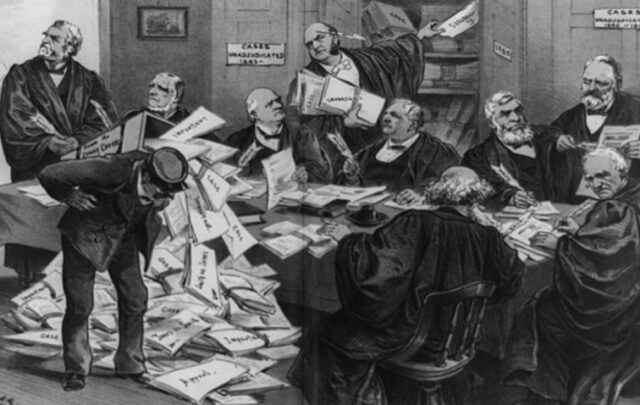It will be the 28th time that the global community meets under the banner of the United Nations to address what has been called by President Biden and others the greatest “existential threat to all of humanity.” Mr. Biden, rightly heralded as the most climate-conscious president in US history, won’t be attending the climate summit in Dubai.
Keeping Biden close to home are multiple political difficulties—not the least of which are his dreadful voter approval ratings that bode badly for his 2024 re-election chances. It is not to say, however, that the US, under Biden’s leadership, will be a passive actor throughout the long negotiating days in Dubai.
Senior members of the US delegation will include Secretary of State Anthony Blinken, US Special Envoy John Kerry, National Climate Advisor Ali Zaidi, and Senior Advisor John Podesta. Biden is not the only head of state who won’t be in Dubai. Chinese President Xi Jinping has also chosen to stay home.
However, both presidents have sent a strong message to COP28 delegates. It’s hoped that their recent meeting and agreement, scheduled as an aside to the Asia-Pacific Cooperation (APEC) summit held just weeks ago, will be taken as a sign of leadership by example. Details of the bilateral agreement were provided in the joint Sunnylands Statement (Sunnylands) released by the White House after their meeting.
It’s time to stop building coal-fired power plants
According to Special Envoy Kerry, high on the US delegation’s priority list will be a “push for an immediate end to new permitting of coal-fired power—not just in China, which keeps building coal plants, but everywhere.” A second goal of the delegation, which is also incorporated in the Sunnylands agreement, is to “pursue efforts to triple renewable energy capacity globally by 2030.”
Xi and Biden have also agreed to reduce non-CO2 greenhouse gas emissions, including methane, nitrous oxide, ozone, black carbon, and hydrofluorocarbons (HFCs). Although often overlooked contributors to climate change, non-CO2 gases are half of the problem. Cutting these short-lived climate pollutants “can avoid four times more warming by 2050 than decarbonization policies alone.”
The US Energy Information Administration (EIA) has recently concluded that US energy-related emissions will fall three percent for all of 2023. The emissions tracker, Carbon Monitor, also concluded that US 2023 emissions are declining but at a slower rate (2.5 percent).
Progress has been made, but more needs to be done
Although progress has been made, POLITICO has reported that at the three percent reduction rate, the US remains behind its commitments under the Paris Agreement to cut emissions to half of 2005 levels. Meeting its goals under the accord will require the US to reduce its greenhouse gas emissions by six percent annually through 2030.
Plummeting coal demand is the primary source of falling US carbon emissions. However, natural gas is filling the gap—a fact that will not be lost on COP28 delegates. In 2022, natural gas use increased by eight percent and was “on track to account for 42 percent of power production.” Notwithstanding the strong growth of solar and wind in the US, production has essentially remained flat during the same period.
According to EIA estimates, renewable generation, including hydro, will account for 22 percent of US power generated in 2023. Although Biden would be the first to say that more needs to be done, the delegation will point to the administration’s considerable accomplishments as a solid foundation upon which to speed the transition to a low-carbon economy. For example, the passage of the $370 billion Inflation Reduction Act (IRA) that provides federal, state, and local cash incentives and investments for rapidly expanding the contributions of non-carbon emitting energy technologies positions the US well for accomplishing a tripling of power production from non-carbon emitting technologies and resources. The IRA and the enactment of bipartisan infrastructure programs are helping to upgrade, expand, and build new central and distributed electric grids.
It’s not just about CO2
Another significant Sunnylands-related objective of the US delegation will be to encourage all countries to commit to reducing non-CO2 greenhouse gas emissions, including methane, nitrous oxide, ozone, black carbon, and hydrofluorocarbons (HFCs). Although often overlooked contributors to climate change, non-CO2 gases are half of the problem. Cutting these short-lived climate pollutants “can avoid four times more warming by 2050 than decarbonization policies alone.”
Phasing-out or phasing-down are not the same
Unfilled and inadequate voluntary commitments under the Paris Agreement and the passage of time infuse each successive summit with greater urgency. Add to these today’s wars—especially in Ukraine and parts of the Middle East, Africa, and Asia, high inflation and the rise of right-wing isolationist governments all threaten to prevent the transition to low and no-carbon global economies—at the scale and pace needed to keep from experiencing the worst effects of Earth’s warming that lurk beyond the 1.5-to-2.0-degree Celsius threshold.
Is it any wonder that caution will be a watchword at COP28? Add to caution the word suspicion.
Although a significant step forward in US-China relations and the deployment of renewable energy systems, e.g., wind and solar, the Sunnylands agreement was silent on phasing out fossil fuel systems. Words matter. In the case of negotiations at the conference, the most contentious words will be the phrases phasing-out or phasing-down.
According to Special Envoy Kerry, there’s no conflict between the phrases. “In order to phase out, you’ve got to first phase down; phase down is the road to phase out.” Notwithstanding Kerry’s turn of phrase, when seen through the eyes of climate activists and developing and island nations caught in the throes of rising sea levels and choked by the dust of once fertile farmlands, phasing down is little more than a euphemism for continuing global reliance on fossil fuels.
Where’s the justice?
Days before the climate begins, long-standing suspicions have been reinforced by leaked documents recently published by the BBC. The papers indicated the UAE’s intent is to use the summit and its leadership role as a marketing opportunity for peddling its oil and gas reserves to more than a dozen countries. Among the suggestions in the memoranda was that “the oil-producing nations of Saudi Arabia and Venezuela be told ‘there is no conflict between the sustainable development of any country’s natural resources and its commitment to climate change.'”
According to the BBC’s copies of the documents,
“there are talking points for 13 other countries, including Germany and Egypt, which suggest telling them that Adnoc (the UAE’s national oil company) wants to work with their governments to develop fossil fuel projects. Although the UAE did not deny using summit meetings for business purposes, they stated, “private meetings are private.”
Belgium’s climate minister, Zakia Khattabi, summed up the seriousness of the situation. “These news reports add to the existing concerns regarding the COP28 presidency. The credibility of the UN climate negotiations is essential and is at stake here.” The shadow of the UAE memos has cast a pall over the conference. Trust is the currency of all binding negotiations.
The question sure to dominate the two weeks of meetings and negotiations will be: where is the justice? Therefore, it must be the overarching objective of the US, EU, and other developed and large developing nations to answer the question directly and convincingly. Doubts abound, but so do solutions. Finding them is the responsibility of every actor at COP28.






